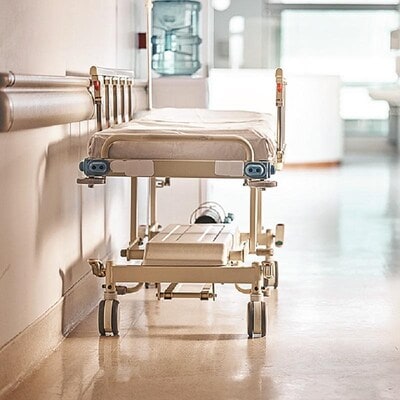Max Healthcare reported a 20 per cent year-on-year rise in revenue at Rs 1,543 crore in the June quarter, while Fortis Healthcare saw a 12.2 per cent rise in revenue at Rs 1,859 crore.
Similarly, Apollo Hospitals Enterprise reported a 15 per cent year-on-year increase in revenue for the first quarter of FY25, which stood at Rs 5,086 crore.
This growth comes after specialties such as oncology, gastroenterology, neurosciences, renal sciences, orthopedics and cardiac sciences recorded notable increases across all hospital networks in Q1FY25, contributing significantly to the overall revenue increase.
According to figures released in its investor presentations, cardiac sciences and oncology (with radiotherapy) led revenue growth, with Fortis reporting year-over-year increases of 22 percent and 12 percent in these specialties, respectively, while Max reported increases of 7 percent and 21 percent in the same areas.
These two specialties also accounted for around 36 per cent of Apollo Hospitals’ revenue mix for the June quarter.
Highlighting the importance of growth in high-end specialties, Ashutosh Raghuvanshi, MD and CEO, Fortis Healthcare, said the shift towards high-growth specialties has been instrumental in driving overall revenue growth.
“The six core specialties (oncology, gastroenterology, neurosciences, renal sciences, orthopedics and cardiac sciences) consistently contribute 63 per cent of the revenue to Fortis’ hospital business,” he added.
Similarly, Apollo Hospitals and Max Healthcare’s six major specialties contributed 70 per cent and 73.1 per cent of their inpatient revenues in the June quarter, respectively, according to data disclosed in their investor presentations.
Strong growth in key medical specialties has also led to increased average revenue per occupied bed (ARPOB) per day and higher occupancy rates for these hospital networks.
In an investor conference call for the June quarter, Abhay Soi, President and Managing Director, Max Healthcare, said ARPOB per day for the quarter improved to Rs 80,100, growing 7 per cent year-on-year, and the improvement was largely due to growth in oncology, orthopaedics and renal sciences, as well as increased number of robotic procedures.
“This is in addition to tariff revisions for the self-payment, insurance and institutional segments,” he added.
Commenting on the same, Raghuvanshi said the 9.7 per cent YoY increase in Fortis ARPOB can be attributed to the high proportion of complex procedures, particularly in high-end specialties, and introduction of new medical technologies.
“Fortis has focused on improving its service offering, including a higher proportion of complex and specialized procedures, which naturally command higher prices. The company has also seen an increase in patient footfall for advanced treatments, particularly in specialties such as oncology and neurosciences, which are higher-revenue segments,” he said.
“Furthermore, there has been a notable increase in key surgical procedures, particularly in neurosciences and robotic surgeries, which have seen year-on-year growth of 23 percent and 59 percent, respectively,” Raghuvanshi said.
Hospitals are also planning to pursue growth in these specialties, which will ultimately lead to higher ARPOB and earnings before interest, taxes, depreciation and amortization (EBITDA) margins per bed.
Speaking about Max’s plans during an investor conference, Yogesh Sareen, Senior Director and Chief Financial Officer (CFO) of Max Healthcare, said, “We aim to move up the value chain. So, we will be into liver transplants, oncology, neurology, cardiology, cardiac surgeries, etc.”
Commenting on Fortis’ plans to increase such procedures, which would lead to a higher ARPOB, Ashutosh Raghuvanshi said that given current trends such as rising demand for high-value complex procedures, continued expansion of its specialty mix and integration of advanced medical technologies, they expect the ARPOB to maintain an upward trajectory.
“We are optimistic that these drivers will enable Fortis to achieve strong ARPOB growth by the end of fiscal year 2025, further strengthening our financial performance,” he added.
Disclaimer:
The information contained in this post is for general information purposes only. We make no representations or warranties of any kind, express or implied, about the completeness, accuracy, reliability, suitability or availability with respect to the website or the information, products, services, or related graphics contained on the post for any purpose.
We respect the intellectual property rights of content creators. If you are the owner of any material featured on our website and have concerns about its use, please contact us. We are committed to addressing any copyright issues promptly and will remove any material within 2 days of receiving a request from the rightful owner.

